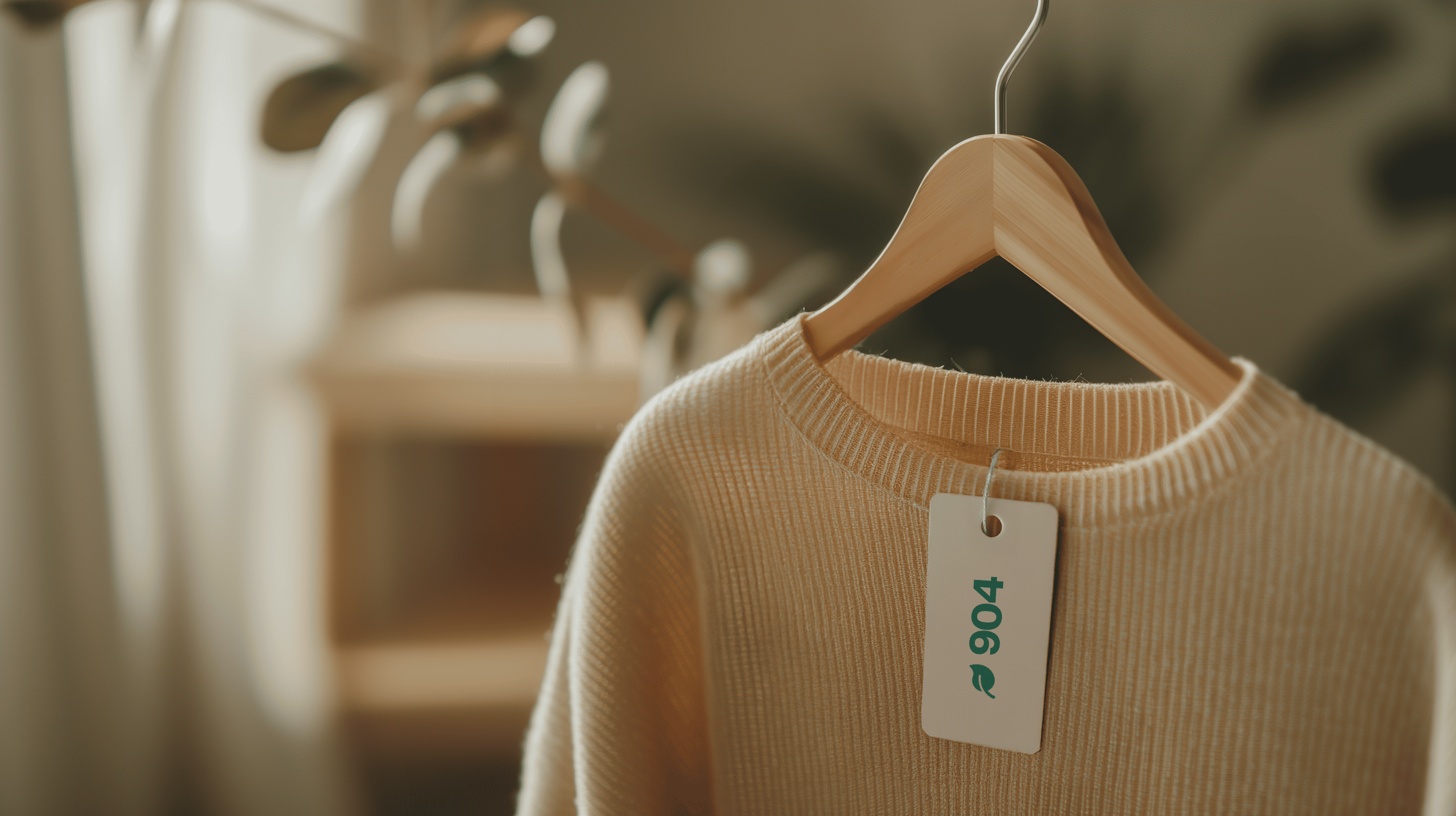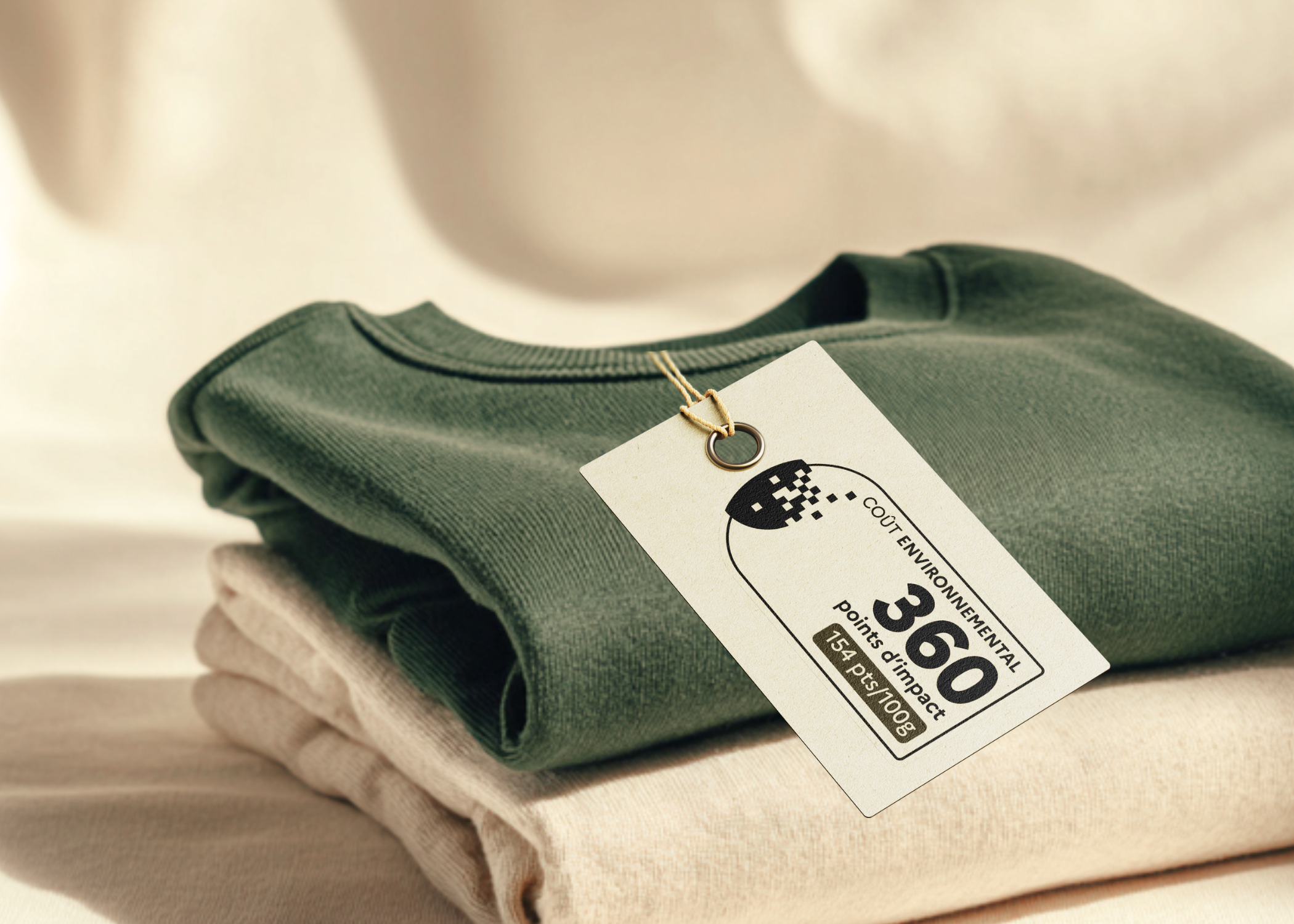Greenwashing and Greenhushing: A Middle Ground Does Exist

In a world where advocating for the environment seems to be vital for one's reputation, it is worth asking to what extent the commitments declared by companies reflect reality. And the answer to this question is less obvious than you might think. Alongside greenwashing, which has long since made its way into public opinion, an opposite trend is troubling consumers: greenhushing. Fashion players are caught between two extremes: communicating too much, even more than the truth, or not enough about the sustainability of their products. Let's have a look at these two trends and at the solutions to give the right value to your commitments.
Greenwashing, a sedative for consciences
If we had to summarize the now widely known trend of greenwashing, we would certainly use this sentence: "By saying too much, we end up saying nothing". Greenwashing is the use of eco-friendly claims to convey an environmentally responsible image to the general public that does not correspond to reality. The objective is to attract consumers thanks to a good reputation and to convince even the most eco-conscious. Indeed, marketing strategies can operate in a more or less implicit way to appeal to the general public: for instance, green packaging or an advertising campaign reminiscent of nature. Or even expressions likely to be misinterpreted by the consumer, such as the words "zero carbon".
The danger of this practice is exactly that of deforming the perception of actions carried out to protect the environment in the eyes of the public. The confused and misinformed consumers believe that they are doing a good deed by buying a product that is not actually environmentally friendly. However, there is a less obvious and equally detrimental consequence. A brand that advertises its commitment to the environment can give us the feeling that the efforts made for the planet are sufficient and that the problem is being solved. This could not be further from the truth.
Fortunately, this phenomenon has been generating criticism for a long time. The increasing sensitivity of consumers is leading them to inquire about the reality behind a simple green package or a "100% nature-friendly" label. The efforts of governments and the press to uncover these "eco-liars" are on the rise, and the actions of brands are now being carefully dissected to better inform the public.

Greenhushing: when less is not more
The pressure exerted by public opinion can also have negative repercussions on brands that are more committed to the environment. Frightened by the level of attention this subject has been getting recently, some of them are choosing to keep their green practices quiet. Another trend is emerging: greenhushing, that is, the overly discreet attitude of some companies that communicate little or not at all about their best ecological practices. Behind this fear of joining the chorus of "green voices" lies the concern that the brand's contribution to the issue of sustainability will be perceived as insufficient by the general public. Moreover, some fear that they do not have the necessary resources to fulfill the commitments they have made publicly.
A report published by South Pole suggests that many brands are now trying to keep a low profile on the subject. About a quarter of the 1,200 companies surveyed do not wish to make public any details of their commitment. This trend distorts the perception of the environmental issue, too, making it difficult to understand which fashion stakeholders deserve to be rewarded for their efforts. Greenhushing can also discourage consumers from establishing a strong bond with the brand, since customer trust is based mainly on accurate and reliable data.
At a time when the public is increasingly seeking more transparency to make informed decisions, silencing actions that should instead be a strong point may be a bad idea. Not to mention a missed opportunity to inspire the customer and the market by raising the bar on sustainability...

Fairly Made®, the perfect compass to find your way
For fashion stakeholders, there is one obvious question: in this jungle of environmental promises, where those who have something to say don't speak up, while those who do nothing say too much, how to speak up? The Fairly Made® SaaS platform could be the answer you've been waiting for, as it sets all the bases for a sincere and transparent communication with the end customer. Our textile engineers' expertise can help you avoid both extremes while respecting the law.
In France, since January 1, 2023, the Climat et Resilience Law severely limits the freedom of companies to publicly display their environmental initiatives if these are not supported by evidence. What better way to give credibility to the information you display to your audience to avoid any accusation of greenwashing? We are a team of experts who offer a method of calculating the environmental impact validated by specialists in the field and based on 5 criteria: environment, compliance, traceability, recyclability and sustainability.
Fairly Made is a delegate of ADEME and is certified by AFNOR. It provides fashion brands with a provisional environmental score in view of the decree planned for 2023 as part of the Climat et Resilience Law. We are also contributing to discussions in Europe regarding the definition of global standards for environmental labeling. An unquestionable argument to motivate your statements and enlighten the consumer in all sincerity. Reliable data resulting from a survey conducted by our traceability specialists, to save you time. On the other hand, Fairly Made® can also bring you the necessary confidence to make a long-term commitment to the environment and keep your promises. No need to hide your efforts for a more sustainable world when you have a competent ally to help you make progress in reducing your impacts.
In short, this world of green princesses and promises in the wind can scare many. But what is really important, and market developments show us this, is to know how to build a relationship of trust with your customers by knowing what you are saying. Now that you know the secret to achieving this, there's no excuse!






%20for%20Apparel%20-%20The%20Ultimate%202025-2026%20Guide.png)




.png)










.png)

.svg)